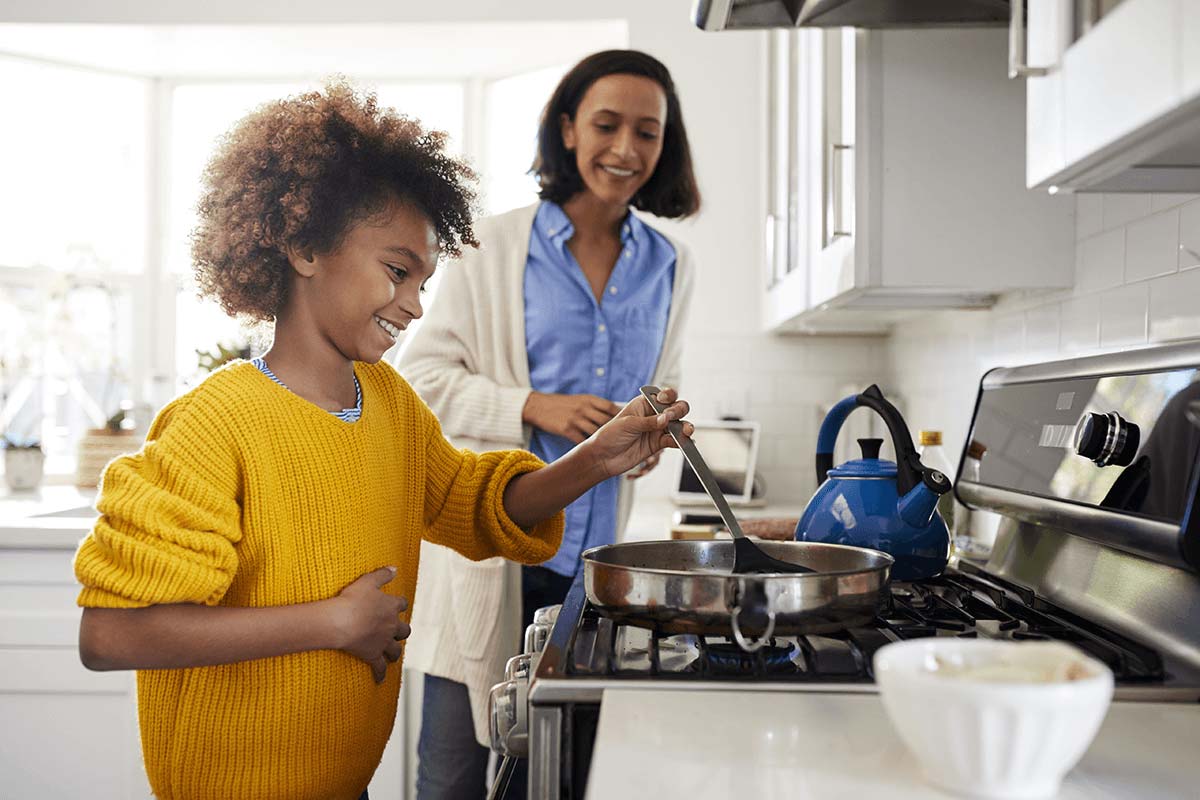5 reasons to cook together as a family

With busy work schedules, after-school sports, play dates and more, it can be hard to carve out time to simply be together as a family. One unexpected way to get that quality time is in the kitchen. And there are some serious benefits to making meal prep a family affair – whether your sous-chef is a pint-size preschooler or a taller-than-you teen. Read on for the top 5 perks of cooking together as a family.
1. Build long-term bonds
Spending quality time together fosters connection and conversation. And that’s just as true when your family is peeling potatoes as it is when you’re all snuggled up together for bedtime stories. As little kids turn into teens, families tend to spend more time apart. So cooking – along with activities like biking, gaming or taking a walk – can be an ideal way to boost closeness.1
Spending quality time together fosters connection and conversation. And that’s just as true when your family is peeling potatoes as it is when you’re all snuggled up together for bedtime stories. As little kids turn into teens, families tend to spend more time apart. So cooking – along with activities like biking, gaming or taking a walk – can be an ideal way to boost closeness.1
2. Hone your child’s math skills
As they learn to cook, kids are learning valuable skills, including problem-solving. Cooking is also good for the brain. It helps kids sharpen their critical thinking and math skills.2 How can cooking do all that? Well, consider what goes into fixing a dish. You need to read the recipe, measure ingredients and figure out cook time.
And for the littlest kids, all that stirring and pouring can help strengthen their hand-eye coordination and fine motor skills.
3. Keep food traditions alive
Involving your family in cooking family recipes can be a great way to celebrate your cultural roots. Passing down recipes from your parents and grandparents can help your family strengthen their connection to the past.2 If you don’t have family recipes to draw from, go to the U.S. Department of Agriculture site. It publishes a variety of diverse, healthy recipe collections from various cultures, from Native American to Filipino.
4. Boost your kids’ self-confidence
According to the American Academy of Pediatrics, cooking feeds into the building blocks of a child’s self confidence:3
- Purpose — channeling their energy toward an achievement
- Competence and pride — solving problems and seeing results
- Trust — you are empowering them to make decisions that will affect the meal
- Responsibility — you’re showing you have faith they can complete the tasks
- Contribution — participating in meal preparation in a meaningful way
5. Raise a healthy eater for life
Even the pickiest eater is more likely to try a new dish when they’re involved in preparing it. But learning to cook can shape non-picky family members too. Teens who know their way around the kitchen become adults who cook (and eat) vegetables, eat fewer fast-food meals and eat together as a family more often.4
So gather your family and head to the kitchen. Pick a recipe you think will be a crowd-pleaser, give the kids their tasks and work together to make a meal. You’ll be glad you did.

